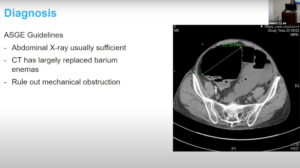NEW YORK (Reuters Health) – A retrospective multicenter study conducted in France concludes that combination chemotherapy with gemcitabine and oxaliplatin is effective in patients with advanced hepatocellular carcinoma (HCC), with manageable toxicity.
“Tumor responses permitted potentially curative treatment that was not initially feasible in a significant proportion of patients,” the investigators report in the Journal of Hepatology online September 17.
Dr. Julien Taieb, with the Georges Pompidou European Hospital and University of Paris Descartes, and colleagues point out in their report that about 70% of patients with HCC are not candidates for curative surgery at diagnosis. While sorafenib has shown encouraging results in improving survival in this population, and is the current standard of care, it does not induce tumor shrinkage that would permit resection aimed at cure.
Many chemotherapy regimens have been tried for advanced HCC, the authors continue, and the combination of gemcitabine and oxaliplatin (GEMOX) appears to be the most promising. The current paper describes the team’s experience with the GEMOX regimen in 204 consecutive patients with advanced HCC treated between 2001 and 2010.
Grade 3-4 toxicity that included thrombocytopenia, neutropenia, diarrhea and neuropathy, occurred in 44% of the patient. This led to discontinuation of treatment in 16% of the cohort, the investigators report.
On the other hand, the disease control rate was 66%, and tumor downstaging meant that 8.5% of the patients became eligible for curative-intent therapies, the data indicate.
The analysis did not uncover any clinical or biological factors that predicted treatment response, which was one of the independent factors associated with overall survival; others included gender and underlying cirrhosis.
Median progression free survival was 4.5 months, and median overall survival was 11 months, Dr. Taieb and colleagues found.
“The results of this study underline the current interest of the GEMOX in a selected population of patients with advanced HCC and this chemotherapy could be indicated as a first line treatment for patients who may particularly benefit from tumor downsizing,” they conclude.
“Pending the results of ongoing randomized trials comparing sorafenib plus GEMOX versus sorafenib alone,” the authors add, “GEMOX may also be a therapeutic option after sorafenib discontinuation in the absence of validated second line treatment.”
SOURCE:
Gemcitabine plus oxaliplatin in advanced hepatocellular carcinoma: A large multicenter AGEO study




